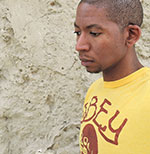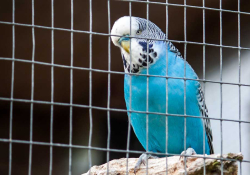Roses and Jasmine
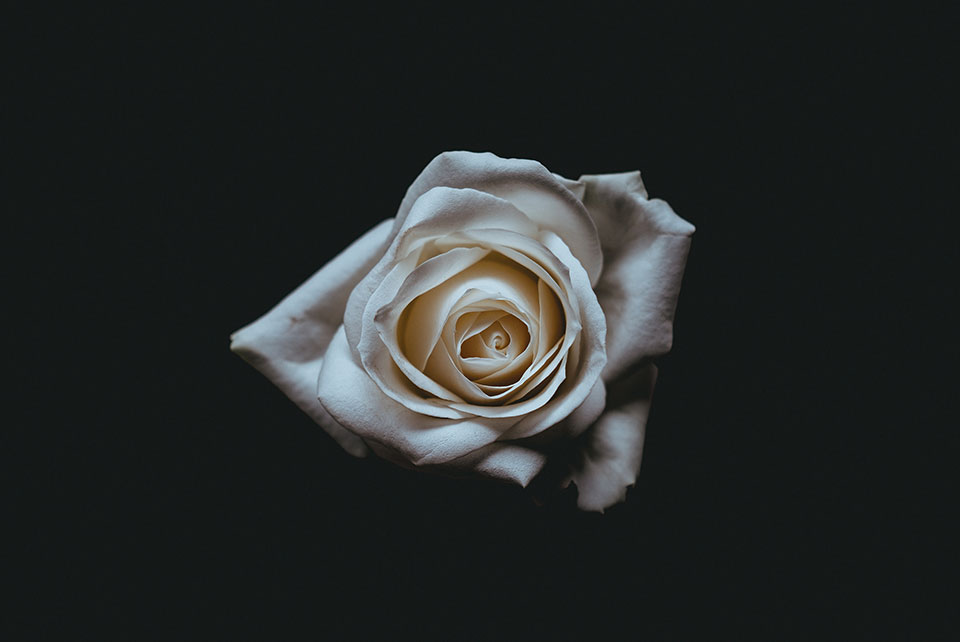
While on a pilgrimage to the site of Mohamed Bouazizi’s self-immolation in Tunisia, which sparked the Arab Spring, the narrator meditates on revolution, death, and immortality.
HE STOOD ON THE balcony staring at the empty building, staring through the glassless windows and pondering their enormity. He wondered why he hadn’t noticed their massiveness before then, even though he’d lit a cigarette each morning in that colonial hotel, each morning on that balcony, the seven mornings he was in Tunis. “Dawn, dawn, dawn,” he mumbled before lighting another. He watched the swifts fly in and out, how they’d sometimes perch in the trees, their branches trimmed to green boxes. He imagined the square, that street filled with people, the lines of poetry they shouted, the signs and banners made of paper and bolts of fabric. He wished he had been there, then, instead of Mississippi where he’d lived for thirty years with a woman seventeen years his junior and his daughter, who recently turned twenty.
He smashed his cigarette in the blue ashtray he held in his left hand before putting on his light wool blazer and taking the elevator downstairs. “Salaam alaikum, Si Iraqui. The taxi is ready for you.” The woman at the front desk smiled and gestured to the driver, who looked like he hadn’t slept his entire life.
“I want you to know I am a good driver.”
“I’m glad,” he said, not assuming anything else as that was his job. He removed his leather tote from shoulder, his raffia hat from head. The driver opened the door for him, placing his bag and hat in the back seat.
“I need to stop for flowers,” he said, adjusting to the leather seat.
“What kind of flowers do you need?”
“Wherever there are flowers, I will find what I need.”
“Okay. Are you meeting anyone in Sidi Bouzid?”
“No, the flowers are for the revolution.” The driver hadn’t expected that answer and nodded as if he had. When they stopped at the flower shop, Si Iraqui took off his sunglasses. He didn’t like roses, but they were most of what they had. He pressed his nose inside a white blossom. It made him think of snow and the white nightgown his wife wore the first time they’d made love. “I want three of these: three orange, one yellow, and some jasmine.” The owner arranged the bouquet with white tissue paper and a linen ribbon, which he tied artfully. Si Iraqui placed it in the back seat near his bag and hat before they drove. It looked as if it were about to rain. For those six days prior, rain wasn’t in sight. The sun was so strong he felt it cooking his scalp, finding it raw beneath thick silver waves. He knew the drive would be long, about four hours, but he was prepared even though he hated being in cars for long periods. He suffered from nausea, and cars induced it just as often as boats. He had taken pills with breakfast, and he expected to feel nothing for the whole trip: four hours there and four back, nothing related to the stomach or head or throat, nothing at all.
In 1964 he met Malcolm X in Algiers. It was in a library where he was reading Kafka’s The Castle, when Malcolm X just walked in the large room. Amine was sixteen and visiting his father, who had dropped him off at the library. In Morocco, when Amine was two, his father left both him and his mother. Even though impossible, he remembered or thought he remembered his father kissing his forehead when he left Marrakech, his hands too, hot on his face all saying, This may be it, the last. There were a few letters and telephone calls, but it was the first time he’d been to Algeria and the first time he’d left Morocco. The fourteen years he hadn’t seen his father weren’t tragic to him. He had decided, very early, he didn’t need his presence. But he did like seeing him again, then, seeing his face, the face he’d inherit, later.
Malcolm X was the first American he’d met. He was the opposite of every American he’d seen on television or in film. This relieved him. He remembered shaking his hand, as everything in the room seemed to go gray except him and Malcolm X and Kafka’s opened novel on the table. He wanted to ask if he should go to France to study or stay in Algeria or stay in Morocco. But the meeting was one without sound, just two hands and two smiles in a room that had lost all its color. He eventually did, the year after Malcolm X was killed, attend university in Paris and became part of the movement and drank wine, bottles to lips. He was angry and young. Malcolm’s death made him cry in his room, made his hands jut to the glow-in-the-dark stars stuck on the ceiling. He was surprised he hadn’t been deported or expelled from university. He believed Charlie Parker protected him because he perpetually played his music in the room. The room he shared with a student from Mali. Parker had saved them both.
What would Malcolm X think of him, then, think of the revolution, think of Mohamed Bouazizi?
But what would Malcolm X think of him, then, think of the revolution, think of Mohamed Bouazizi? That’s what he asked himself with eyes closed on the highway, his eyes beneath dark sunglasses. He had planned to finish university in France, then attend graduate school in the United States, become a political scientist, and join the movement there, to march with Malcolm X, if he’d remained alive, and everyone else: everyone smart, everyone with real morality, not the kind religion often masked. Malcolm X made him want that even though he wasn’t religious, even though he pretended to be for his mother and perhaps the society. He told his father not caring what he might think. “You’re like me, Amine. I’ve passed that onto you without speaking it.” He loved his father then, suddenly. It surprised him. He never knew he loved him and it didn’t matter if it wasn’t reciprocated. So many things surprised him in Algiers.
HE OPENED HIS EYES to see the land. It was similar to that of Morocco but more organized, less plastic strewn about the green. He loved the grace of the grapevines, how they curled about the skeletal sticks in the ground. “Will the grapes be served as dessert?”
The driver laughed. “If dessert is in a green bottle.”
Amine laughed. “We have vineyards in Morocco, too.”
“Yet we are Muslim,” the driver said.
“I’m not Muslim.”
“I mean we are supposed to be.”
“We are supposed to be many things. Mystery. This is our veracity.”
The driver wanted to speak to him more, speak to him deeply, but felt it too impolite, too intrusive. He saw Amine as an old man, wise, but old and always on the verge of irritability. He thought he may have been handsome as a young man, girls offering their kisses behind buildings, stone fences, garages, behind bedroom doors—sex, too, in all those dwellings. It was the life he wished he had. The life most young men wanted, he suspected. But everyone wanted something and most didn’t get whatever it was. That’s what he believed, as that was his life. He didn’t mind driving; in fact, he liked it. He had seen most of Tunisia due to his profession and liked meeting people from other places. “Where are you from, sidi?”
“Morocco. And you?”
“Of course, Tunisia. I grew up in Tunis.”
“One never knows. We shouldn’t assume anything. But I will contradict myself and say, you must be a revolutionary?”
“I wish I were.”
Amine let out a sigh, as he understood this more than he’d wished. “We do what we can.” He took off his sunglasses. “I’m Amine. What’s your name?”
“Ahmad.” They shook hands. “So why are you here?” He didn’t know if it was inappropriate to ask the question, but he took a chance.
Amine shook his head. “Because I wasn’t here in 2010. Because I haven’t been to North Africa in thirty years.” He rubbed his forehead. “We all must return.”
“But . . .”
“Go ahead, ask the obvious question.”
“Why didn’t you go to Morocco?”
“Yes, you got it right,” he said, staring out the window, staring at the stork nests on top of the telephone poles. They looked like giant baskets used to transport bread from truck to store to restaurant. Those giant birds with those giant beaks that looked like spikes made to splay through that beating muscle, red and shiny. Those birds reminded him of Morocco as he’d seen both the nests and storks on rooftops and rusted satellite dishes throughout the country. He wondered if those dry nests sometimes turned to charged green branches, if they sometimes glowed at night. “I don’t have anyone there anymore. We are dead, most of us dead.” He stretched his arms above his head. “Tunisia is alive. It is the beginning of life for us.”
“Who are we, Amine?” The driver slightly rolled down the window, letting in some air, letting out some of what was stale in that car.
“You are the beginning and I’m what’s past. I want to see how we will begin before I die.” He looked at the wheat field, the gold of it folding in wind. It was as if it appeared just in time, the waving and folding of it, both old and new. He thought of it being threshed, the grain shaken and ground into flour. He thought of women kneading dough, smearing it with green olive oil as his mother had done, as he’d seen women constantly doing in the market close to their apartment building in Marrakech.
He fell in and out of sleep until they stopped. He saw a woman in a black scarf swathed about her head and a blue djellaba that picked up the wind. She walked with a small boy toward a steel garbage can billowing black smoke. “Would you like some bread? This town is known for its bread.”
“Okay,” Amine said, looking at the few women near darkened grills and tents. Ahmad got out of the car, slamming the door shut. There were few cars passing on the street. The wind, that’s what he kept hearing, kept seeing through the flapping tents and the dust that would lift and curl.
IN 1970 HE BEGAN graduate school in Eugene, Oregon. Even though he wanted to be there, he was afraid of the US. So many people, so many leaders he admired had been killed there. Before class he’d drink a shot of whisky, sometimes three, and proceed into the lecture hall or seminar with hair wide as Jupiter. Two times a week as a teaching assistant, he’d meet his students, have discussions with them, all the while thinking of Morocco and his mother. When she died in 1973, he didn’t tell anyone and didn’t have money to attend the funeral. He expected to die before he finished his doctorate, but he lived and marched in that town almost as much as he’d done in Paris. For those five years, he’d rented a room by himself. No one could see him drink, and he’d learned to hold it, to fake sobriety as if an actor.
That sky he stared at there in Kairouan was the same as the sky he’d seen every morning he rode his bike in Eugene. Ahmad gave him a sandwich made with the warm bread, slices of a boiled egg, and harissa. “I like this,” Amine said as he chewed. He liked the spiciness of the harissa most, the burning it induced.
“I told you,” Ahmad said as he began driving, the sandwich in one hand. There were camels on the side of the road and three boys in burgundy and teal shirts playing among them. The palms were tall and thick and fronds waved as if shredded flags.
Ahmad parked the car near a roundabout. “What happened?” Amine asked.
“The police have stopped me.” He got out of the car, handing the tall police officer in blue uniform and mirrored shades the papers he kept in his wallet. Ahmad blushed as he smiled at the officer who frowned. He walked back to the car and returned to the road. “This is the revolution?” He yelled. “This is our revolution? I wasn’t even speeding and I have a two-hundred-dinar ticket. I don’t even get two hundred dinars for this job.” He slammed his wallet into the glove compartment. “Your revolution? Our revolution? Did you see me speeding?”
Amine wasn’t checking the speedometer. “No, you weren’t,” he said.
“They just stop people because they want money. We can’t say anything about it. Two hundred dinars. Where am I going to get this money? I don’t have any money.”
Amine kept looking at the road through his sunglasses. He was aware of the corruption, as he’d known it in Morocco. He was disappointed, after the revolution, still, still that, he thought.
“Let me take you to Hammamet after Sidi Bouzid?” Ahmad asked. “You’ll love the beach there. We can have grilled prawns on the beach.”
“Not this time, Ahmad.”
He breathed deeply. “You haven’t seen Tunisia until you’ve visited Hammamet.”
“Maybe another time,” he said.
Ahmad thought of the clients he’d driven to Libya and Algeria. He remembered the money he’d received at the end, the stacks of dinars he folded into his wallet: the oranges and bottles of wine he brought to friends’ apartments in Tunis, the blaring music in those apartments all night.
IN 1975 HIS FATHER showed up at Amine’s graduation. He smelled the whiskey on his son’s breath when he smiled at him, when he was unsure he was his father. They embraced on the campus for what seemed to be, at minimum, thirty minutes. Amine kept seeing pines and his father near those pines. They were hugging in a forest of pines where they were the only humans: his father and pines and pinecones and owls staring at them. That was what he saw as they embraced: rose and dust and sandalwood and salt, his father’s scent combining in the forest. He helped him pack up his apartment: books mainly and clothes he’d hoped his son’s job would allow him to discard. He did like his worn yet maintained black leather jacket and the black shades he wore with it and with almost everything even though the sun was minimal most of the time. They drove across the country to South Carolina where the Confederate flag waved everywhere. The only reason he moved there was for the job. It was the only job he’d gotten, and more than being proud of getting the job, he hoped to politicize southern youth into critical, even radical thinkers. He was elated to be living, astonished even.
AMINE WAS EPECTING something different from the town, something grand, at least a feeling of it. “So this is Sidi Bouazid. There’s not much to it,” Ahmad said. The sun was dim as was the town, just a regular town in all of that gray, Amine thought. Ahmad stopped in the center. “How long will you be?”
“Maybe two hours,” Amine said. He opened the back door, taking out the bouquet and topping his head with the raffia hat. The roses and jasmine were pungent in his face as he held the bouquet near his chin. The car was in front of a wall where someone had painted revolution upside down. He gave Ahmad his camera. “Will you take a picture of me here?”
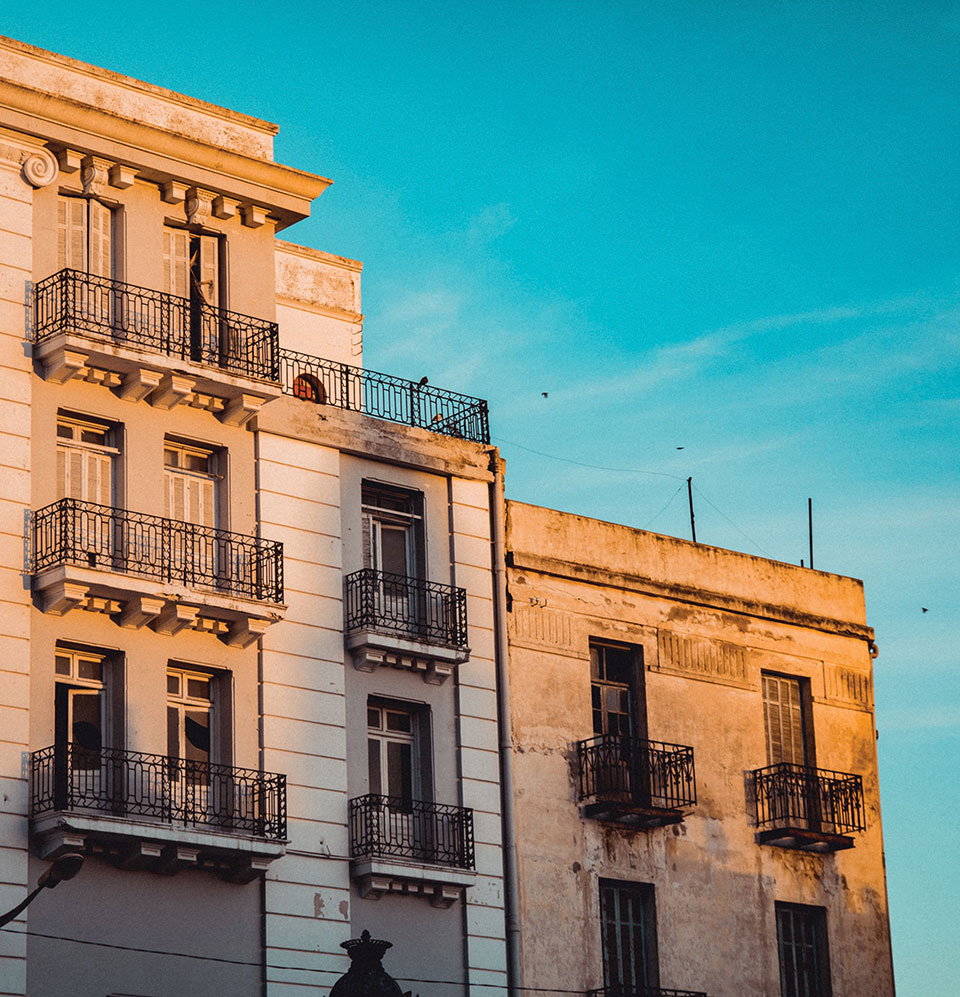
Amine kept one of the roses, pulling petals from it and throwing them onto the wall. He was saying something as he did it, a prayer perhaps, a prayer for them.
Ahmad took the picture of Amine standing in front of the wall. He pulled the roses from the bouquet, lining the base of the wall with them as well as the jasmine. Those who were walking about stopped to watch him: wondered what he was doing, why he was doing it, who he was? Ahmad clicked as he did it. Amine kept one of the roses, pulling petals from it and throwing them onto the wall. He was saying something as he did it, a prayer perhaps, a prayer for them.
The crowd had thickened, as there were about thirty staring not immediately around him but near: behind the car, across the street, further across the street. He dropped the green stem of the torn rose there, in front of the black-and-white wall, and stared at it: arms out, palms facing the sky. Ahmad kept taking photographs and unconsciously felt his eyes welling. Amine slowly walked to Ahmad and took the camera from him. He walked across the street, taking a photograph of the memorial of Mohamed Bouazizi draped in vinyl over a public building. The dead man was clapping, the fading image of him clapping to no one or nothing besides the police station across the street. The heartbeat, Amine thought, this is the heartbeat. He took more pictures of the concrete fruit cart the community had built; we will never forget spray-painted at its base. There were also handprints: red, blue, yellow, and green at the base as well.
A police officer watching Amine walked up to him. “What are you doing?”
Amine looked at his camera, then looked at the officer. “I’m taking pictures,” he said.
“You can’t do that,” the officer said. He was wearing a pale blue T-shirt, which made his protruding stomach seem larger.
“Why not?”
“Terrorism.”
“I’m not a terrorist. I’m American.” The officer walked to the taxi driver and began arguing with him. Amine kept taking pictures and walking slowly. He wanted to see the details: the cracks in the rocks, the way the lotus trees bent in the breeze, how the old man in a red-and-white scarf teetered past the cement fruit crate, hand cupping his chin.
He wanted to see the details: the cracks in the rocks, the way the lotus trees bent in the breeze, how the old man in a red-and-white scarf teetered past the cement fruit crate, hand cupping his chin.
Ahmad ran to him. “The policeman is getting crazy.”
“I don’t care.”
“Just take the pictures then put the camera away.”
“I have enough here I guess. He’s just asserting his nonpower,” Amine said, putting his camera in the leather case. “I’m going to walk around. I’ll meet you under those trees when I’m finished.”
He watched a garlic seller hand braids to women who pressed them against their noses, such pungency. It made them think of death and immortality at the same time.
He rubbed his arm as he stood in front of the building where Bouazizi burned himself. He closed his eyes, seeing fire and hearing a man scream. He passed the fruit stands near the taxi station where cream-colored Mercedes were lined up with doors opened and men sleeping inside waiting for passengers who wouldn’t be around for several hours. The vendors were selling lemons, piles of peaches, apricots, and the remaining strawberries at the end of their season. Perhaps Bouazizi’s cart was there in 2010, he thought. Amine took money out of the ATM, enough to pay the driver and perhaps cover the lunch they’d have along the way. He walked to the open market where a man sat on a carpet clipping his fungal-infested toenails and laughing. He wanted to take a picture of the fruit and vegetable carts but thought it inappropriate as all were going about their business: bargaining for peppers in straw hats usually meant to keep the sun away, but there wasn’t any. The earth was muddy and cluttered with bean hulls, fruit peels, plastic wrappers, and bags. He watched a garlic seller hand braids to women who pressed them against their noses, such pungency. It made them think of death and immortality at the same time. Amine took a photo as inconspicuously as he could, then commenced to the café with the red awning.
There were four costumers, five including him. Three of whom sat a table together talking about Real Madrid, their joblessness, and their mothers who stayed in their bedrooms speaking to themselves.
He looked at the black table and thought of space and the way the night sky appeared when he left his job in South Carolina. It was the day he kissed one of his students in his office. Left his hand on the back of her head, his sunned fingers in her black hair. The cosmic dust they both saw as their lips pulsed over each other’s. She ran from his office flushed and high. She could see her Indian mother shaming her in their tiled kitchen. He covered his mouth, placed a few manila folders in his leather tote, and left the office knowing he wouldn’t return. He placed books in boxes along with a few framed photographs, the potted jade that had grown into a bush, a bottle of whiskey, and three bottles of red wine. He left his apartment.
He was tenured but it didn’t matter in 1984, nine years, done. He just drove his Ford Thunderbird until he’d gotten to Mississippi, until he was in his college friend’s driveway; the one who owned three used-car dealerships. Almost eight hours later, he stood in the driveway crying. Ibrahim saw the headlights of the car cutting through the living room’s sheer curtains. When he opened the front door of the house, there on the porch they embraced. Charlie Parker’s “All the Things You Are” blared from the car stereo. They were both so far away from France, Morocco, Algeria, and Mali, so far away from the men they were, the men they began building.
AMINE LIT A CIGARETTE. He watched people walking across the street in the haze he’d made, in the haze they were within. He turned to his left as the boy at the table stirred a cube of sugar into his shot of espresso. He dropped another cube in and continued to stir. He took a sip and added another cube and stirred. He took another sip. To Amine, he looked as if he were getting smaller with each sip, with each cube of sugar dissolving into the black. The waiter brought him a cup of tea with a short sprig of mint. The tea was brown and sweet and the glass was also short. He sipped it as the waiter came by again and stopped. “Oman?”
“No,” Amine said before taking another sip.
“Egypt?”
Amine shook his head, no.
“Jordan?”
Amine chuckled. “No, America.”
“Really?”
“Yes, but by way of Morocco.”
“Oh, I see. Morocco is a beautiful country, no revolution there.”
“Not like here,” Amine said. The waiter left. Amine watched the boy stirring the thick liquid. The boy seemed then too small for the chair and finally left it, fell from it and the thick sludge the coffee had become. Amine put out his cigarette in the ashtray, appreciating the gray of the day, its calm. He slowly walked back to the car where Ahmad waited.
“Are you ready?”
“Yes,” Amine said, getting into the car.
“Is it okay if a policeman I know travels with us to the roundabout where I got the ticket? Because he’s a policeman, he can negotiate a lower fee.”
“Fee?”
“For the ticket I got, the revolution ticket?”
“Oh, it’s fine,” he said.
The officer sat in the back seat. He was young, in his late twenties as was the driver. “What do you think of the revolution?” Amine asked.
“There is no revolution. Bouazizi wasn’t a hero. He was cheating people. His scale was rigged.”
“What?” Amine asked.
“Their family is earning money from his death,” Ahmad said.
“But he started something,” Amine said. “You can’t take that away from him.”
“It started long before him,” the officer said.
“But he was the spark,” Amine said.
“He didn’t mean to burn himself. It was an accident,” Ahmad said.
Amine stopped listening to them and stared through the windshield and rested his hat in his lap.
“It’s still difficult for us. I want to move to Europe or maybe to Morocco,” Ahmad said.
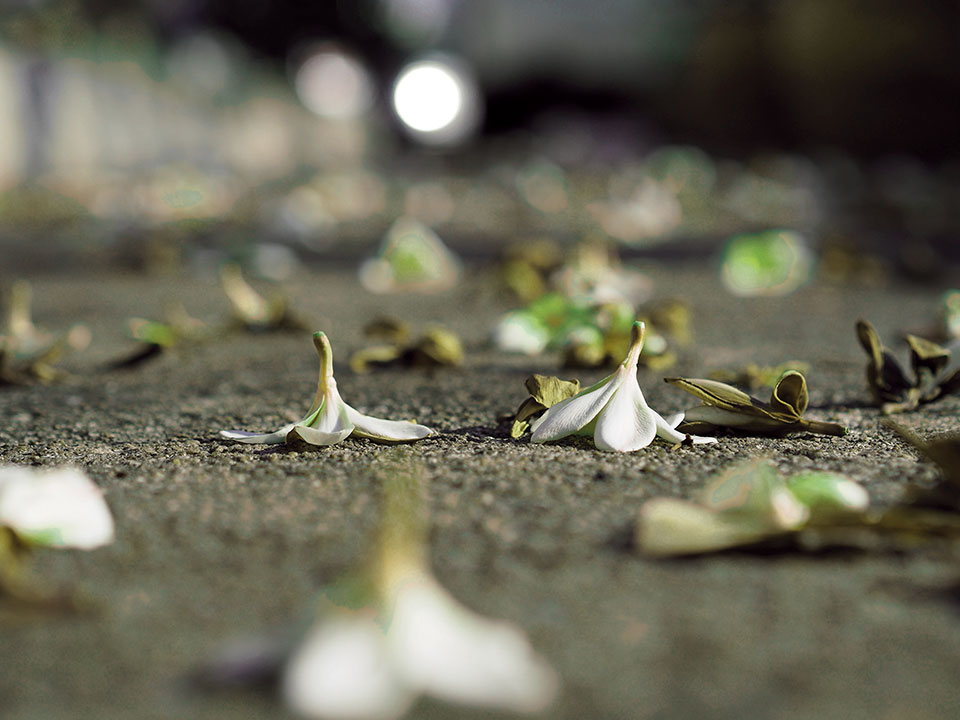
AMINE HAD MARRIED CYNTHIA in 1985. She was twenty years old. He had sold her a used 1982 Oldsmobile Cutlass. She looked like a doll to him. Her hair was short and she was stunningly dark and thin with full breasts that triggered almost a sea of saliva in his mouth when he imagined or looked at them. She was kind and wore strings of pearls or amethyst around her thin neck. He loved her. That’s all he knew when he looked at her, when he ran his fingers over her ears, down her back. Their wedding was simple, and no one but Ibrahim, Cynthia, and Amine approved of, were happy for it. In 1995 they had their daughter, Zineb. Amine’s father came a month after her birth to see his granddaughter. After he’d kissed her, he kissed his son and wept without sound.
WHEN THEY'D GOTTEN to the roundabout, the officer traveling with them got out of the car with Ahmad. Amine watched as they both spoke to the officer who had issued the ticket. There was a lot of nodding and shaking hands, a few smiles even. They returned to the car and Ahmad told Amine that the ticket fee had been cut in half. He was happy or at least less annoyed.
Ten minutes later, they dropped the friend, who happened to have been a policeman, at his home. Amine didn’t see a house where he was left, only a mother veiled in purple and a barking dog and a series of clouds that looked like a wall of bricks held together with pale blue and copper mortar. They waved goodbye as they continued toward the main road.
On the two-lane highway, there was a Mack truck loaded with several large cedar trunks. “That’s a big truck,” Amine said.
“I know.”
As the truck got closer to them, Amine felt the road shake. He closed his eyes as the vibration intensified, then yanked the steering wheel in the opposite lane. Lines of sparks, lines of fire burned the road, shot from the asphalt as the steel car collapsed against the steel truck. Amine walked as white blossoms and green jasmine leaves fell from the sky. The raffia hat he’d had in his lap, had worn to shade the Tunisian sun, turned and turned in the wind until it landed in Amine’s hands. He placed it on his head and kept walking in that rain of petals, rain of jasmine, rain of sunbeams. He carried a bottle of red wine in his left hand and sometimes spilled it into his mouth and swallowed. He saw Cynthia standing in the distance. He kissed then lifted her from the road to spin her around and around. “I’m sorry,” he said. Her mouth was tight but it was as if she understood him, understood his irrationality. Perhaps she’d anticipated it as she pointed to the young woman who wouldn’t look at him, her curls swaying in that peculiar air. He walked to her and placed his hand on her shoulder. His palm burned, leaving it with red and brown lines that blistered. She was crying. She wouldn’t turn to him, no face for him to see.
Amine walked as white blossoms and green jasmine leaves fell from the sky.
Ahmad’s hands were raised. “Why?” he yelled as the white blossoms piled about his shoulders then fell to the ground. He wasn’t entirely unhappy, but he thought of his mother who would be, who would get the news and fall to the floor.
Amine turned from Ahmad and kept walking, feeling better as he walked faster on that road. The smoke from the smashed car ascended in jagged lines, swirls, black and white, gray and grayer. The steel was hot, some of it melted into the asphalt. The Mack truck was also smoking, but the load of the truck, the cedar logs, were stable, attached. A crowd of drivers had formed near the rubble. Their mouths agape, their arms folded. Women began to pray, their dry palms facing the sky. Amine shattered the bottle of wine on the road. Red ran in lines to the wrecked car to join the already wet red of the road. Amine kept walking in that whiteness, in that fragrance of rose and jasmine, kept walking and walking and walking.
New York
Read “Jawad's Flock in Mohammedia,” a poem by Myronn Hardy from this same issue.

